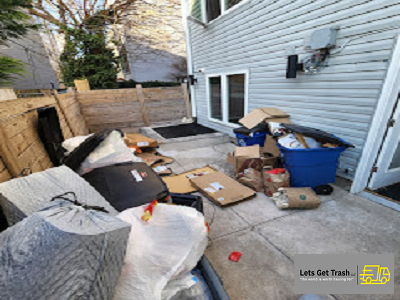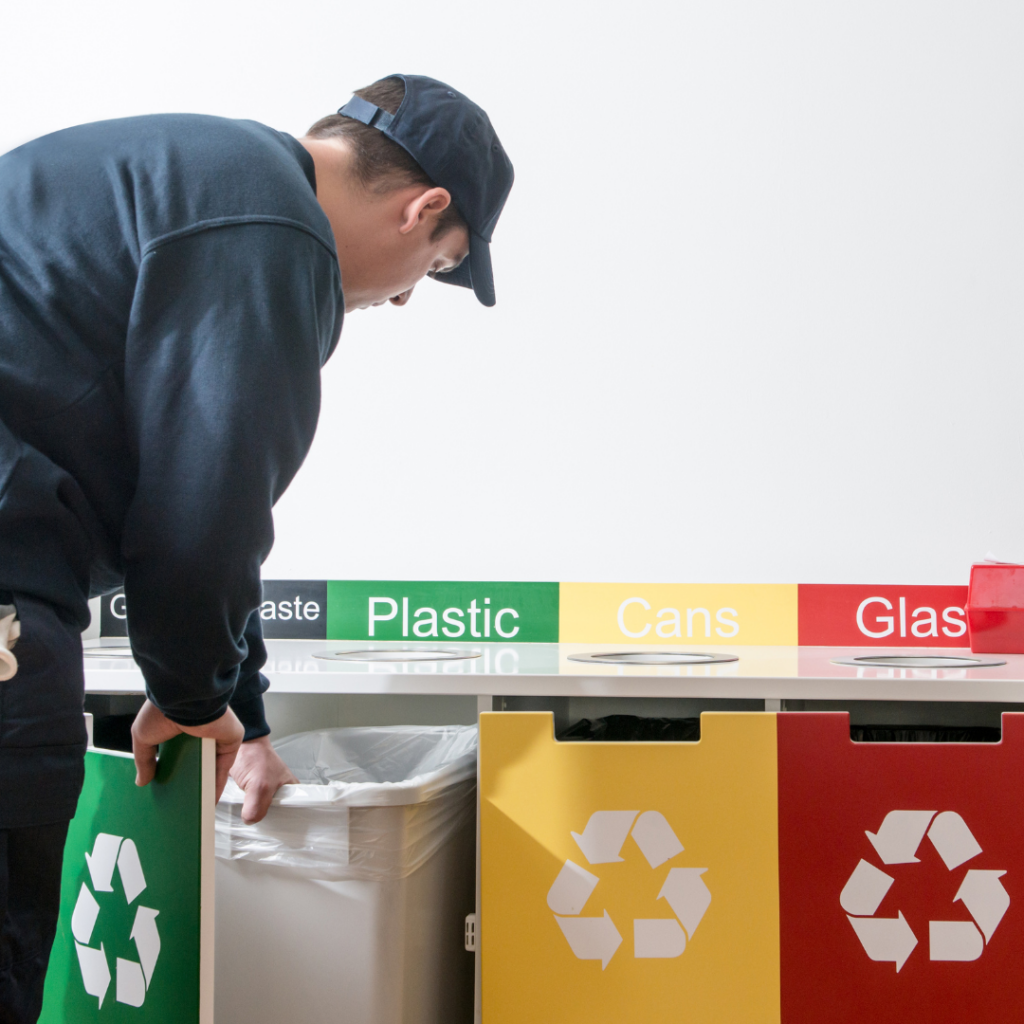Special Event Waste Management: Keeping Events Clean and Green
Special events, whether they’re festivals, concerts, conferences, or weddings, are often memorable occasions that bring people together. However, they can also generate a significant amount of waste if not managed properly. Implementing effective waste management strategies is essential to ensure that these events remain environmentally friendly and sustainable. From reducing single-use plastics to implementing recycling programs, here’s how event organizers can keep their events clean and green.
Plan Ahead for Waste Reduction
The key to successful waste management at special events begins with careful planning. Event organizers should consider waste reduction strategies from the early stages of event planning. This includes minimizing the use of single-use plastics and disposable items such as cups, plates, and utensils. Opting for reusable or compostable alternatives can significantly reduce the amount of waste generated during the event.
Planning ahead for waste reduction is a proactive approach that sets the foundation for a successful and environmentally responsible special event. Here’s an in-depth exploration of strategies to minimize waste during event planning:

Conduct a Waste Audit:
Start by assessing previous events or conducting a waste audit to understand the types and quantities of waste typically generated. Analyze the sources of waste, including food packaging, promotional materials, and disposable items, to identify areas for improvement. This data provides valuable insights for developing targeted waste reduction strategies tailored to the specific needs of your event.
Set Waste Reduction Goals:
Establish clear waste reduction goals based on the findings of the waste audit and the overall sustainability objectives of the event. Determine specific targets for reducing the use of single-use plastics, increasing recycling rates, and minimizing overall waste generation. Setting measurable goals provides a roadmap for prioritizing waste reduction efforts and tracking progress throughout the planning process.
Source Sustainable Materials:
Choose sustainable alternatives for event materials, including signage, banners, promotional merchandise, and packaging. Opt for materials that are recyclable, compostable, or made from recycled content. Consider eco-friendly options such as bamboo-based products, recycled paper, or biodegradable plastics. Collaborate with vendors and suppliers who offer environmentally responsible products and packaging to support your waste reduction goals.
Minimize Single-Use Plastics:
Single-use plastics, such as plastic cups, straws, and utensils, are major contributors to waste at events. Minimize the use of these items by opting for reusable or compostable alternatives. Provide reusable cups or water bottles for attendees, or encourage them to bring their own. Offer compostable utensils and plates made from materials like cornstarch or sugarcane fiber to reduce reliance on traditional plastics.
Communicate Waste Reduction Efforts:
Engage attendees, vendors, and stakeholders in waste reduction efforts by communicating the event’s sustainability initiatives. Use various channels, such as event websites, social media platforms, and email newsletters, to share information about waste reduction goals, recycling programs, and eco-friendly practices. Encourage attendees to support these efforts by participating in recycling and composting programs and minimizing waste generation during the event.
Provide Waste Sorting Infrastructure:
Ensure that the event venue is equipped with adequate waste sorting infrastructure, including recycling bins, composting stations, and landfill containers. Place clearly labeled bins in strategic locations throughout the venue to facilitate proper waste disposal by attendees. Train event staff and volunteers to assist attendees with waste sorting and provide guidance on which items belong in each bin.
Collaborate with Sustainable Partners:
Partner with sustainable organizations, waste management companies, and environmental nonprofits to enhance waste reduction efforts and promote sustainability at the event. Seek out partnerships with local recycling facilities, composting programs, and waste diversion initiatives to ensure that collected materials are properly processed and diverted from landfills. Collaborate with sponsors and exhibitors who share your commitment to sustainability and support your waste reduction goals.
Planning ahead for waste reduction is a proactive strategy that empowers event organizers to minimize environmental impact and promote sustainability. By conducting waste audits, setting clear goals, sourcing sustainable materials, minimizing single-use plastics, communicating waste reduction efforts, providing waste sorting infrastructure, and collaborating with sustainable partners, event planners can successfully reduce waste and create a cleaner, greener event experience for attendees. Investing time and effort into waste reduction planning sets the stage for a more environmentally responsible event and contributes to a more sustainable future for special events worldwide.
Implement Recycling and Composting Programs
Setting up recycling and composting stations throughout the event venue encourages attendees to properly dispose of their waste. Clearly labeled bins for recyclables, compostables, and landfill waste make it easy for guests to sort their trash. Collaborate with waste management companies or local recycling facilities to ensure that collected materials are properly processed and diverted from landfills.
Implementing recycling and composting programs is a cornerstone of sustainable waste management at special events. Here’s a detailed exploration of strategies to effectively establish and manage these programs:
Assess Recycling and Composting Needs:
Start by assessing the recycling and composting needs specific to your event. Consider the types of materials likely to be generated, such as paper, plastics, aluminum cans, food scraps, and compostable serviceware. Determine the quantity of recyclable and compostable materials expected based on factors such as event size, duration, and attendance. This information will guide the planning and implementation of recycling and composting programs.
Source Recycling and Composting Infrastructure:
Acquire the necessary infrastructure to support recycling and composting initiatives at the event venue. This includes recycling bins, composting containers, and signage to clearly indicate waste sorting requirements. Work with waste management companies or local recycling facilities to secure appropriate containers and ensure compliance with recycling and composting guidelines.
Educate Attendees on Waste Sorting:
Educating attendees on proper waste sorting practices is essential for the success of recycling and composting programs. Develop educational materials, such as signage, posters, and digital displays, to provide clear instructions on which items belong in recycling bins, composting containers, and landfill waste bins. Train event staff and volunteers to assist attendees with waste sorting and answer any questions about recycling and composting procedures.
Coordinate Collection and Disposal:
Coordinate the collection and disposal of recyclable and compostable materials throughout the event. Assign dedicated staff or volunteers to monitor recycling and composting stations, empty bins as needed, and transport collected materials to designated collection points. Work closely with waste management partners to ensure that recyclable and compostable materials are properly sorted, processed, and diverted from landfills.
Monitor and Adjust Recycling and Composting Programs:
Continuously monitor the effectiveness of recycling and composting programs throughout the event. Track recycling and composting rates, as well as contamination levels in recycling and composting streams. Collect feedback from attendees, vendors, and staff to identify any challenges or areas for improvement. Use this information to make adjustments to recycling and composting programs in real-time and optimize waste diversion efforts.
Promote Environmental Stewardship:
Promote environmental stewardship and sustainability values by highlighting the impact of recycling and composting initiatives on reducing waste and conserving resources. Share success stories, statistics, and testimonials that demonstrate the positive environmental outcomes of recycling and composting efforts. Encourage attendees to participate actively in waste reduction initiatives and be mindful of their environmental footprint.
Foster Community Engagement:
Engage the local community in recycling and composting programs by partnering with local organizations, schools, and environmental groups. Collaborate on outreach campaigns, educational workshops, or hands-on activities that raise awareness about waste management best practices and promote a culture of sustainability. Celebrate community involvement and recognize the collective efforts of event attendees, volunteers, and partners in supporting recycling and composting initiatives.
Implementing recycling and composting programs is an integral part of sustainable waste management at special events. By assessing recycling and composting needs, sourcing appropriate infrastructure, educating attendees on waste sorting, coordinating collection and disposal, monitoring and adjusting programs, promoting environmental stewardship, and fostering community engagement, event organizers can effectively divert recyclable and compostable materials from landfills and minimize environmental impact. Investing in recycling and composting initiatives not only contributes to a cleaner, greener event experience but also fosters a sense of environmental responsibility and collective action among attendees and the broader community.
Provide Water Refill Stations
Plastic water bottles are a common source of waste at events. By providing water refill stations equipped with taps or water dispensers, organizers can encourage attendees to refill reusable water bottles instead of purchasing single-use plastic bottles. This not only reduces waste but also promotes hydration and sustainability.

Engage Attendees Through Education
Educating attendees about the importance of waste reduction and proper waste disposal practices can significantly impact their behavior during the event. Incorporate educational materials such as signage, announcements, and interactive displays to raise awareness about recycling, composting, and waste reduction initiatives. Encourage attendees to participate in eco-friendly activities and initiatives, fostering a culture of environmental responsibility.
Partner with Sustainable Vendors
Selecting vendors and suppliers who prioritize sustainability can further enhance the eco-friendliness of special events. Choose vendors that offer biodegradable or compostable packaging materials, eco-friendly products, and sustainable practices such as energy-efficient appliances and transportation. Collaborating with like-minded partners aligns with the event’s sustainability goals and sets a positive example for attendees.
Conduct Post-Event Waste Audits
After the event concludes, conduct a waste audit to assess the effectiveness of waste management efforts and identify areas for improvement. Analyze the types and quantities of waste generated, recycling and composting rates, and any challenges or barriers encountered during the event. Use this feedback to refine waste management strategies for future events and further enhance sustainability efforts.
Conclusion
Special events provide opportunities to celebrate, connect, and create lasting memories. However, they also present challenges in managing the waste generated by attendees. By implementing proactive waste reduction strategies, such as minimizing single-use plastics, implementing recycling and composting programs, providing water refill stations, engaging attendees through education, partnering with sustainable vendors, and conducting post-event waste audits, event organizers can keep their events clean and green. Together, we can promote environmental stewardship and create a more sustainable future for special events worldwide.





